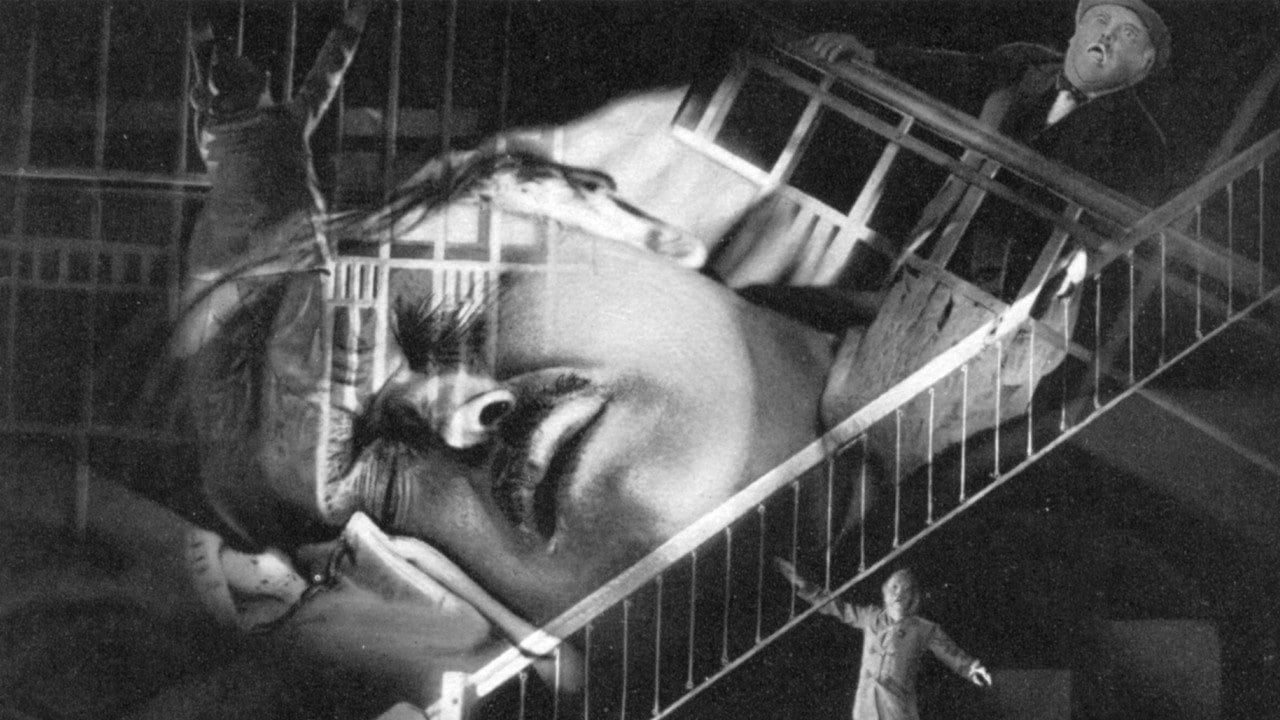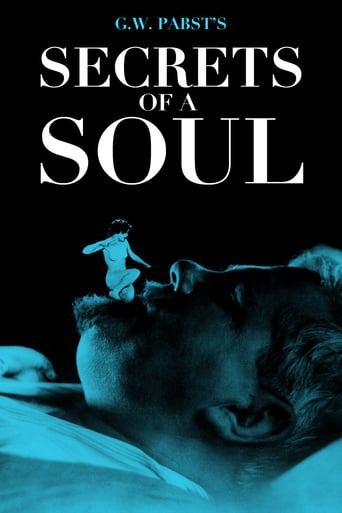

At the beginning of the last century, Herr Sigmund Freud was a notorious Austrian neurologist and psychiatrist who was famous for his innovative studies of mental diseases and the complicated unconscious mind. This led him to found psychoanalysis and write "Die Traumdeutung" ( The Interpretation Of Dreams ) a turning point in modern psychiatry that claimed the path to the unconscious could be found in dreams. Since aristocrats usually have nothing in their minds, psychoanalysis could do little to fill such a void but was very useful for average people whose more accessible simple minds made them good subjects for these innovative psychiatric methods."Geheimnisse Einer Seele" ( Secrets Of A Soul ) (1926) , directed by Herr G. W. Pabst, an Austrian like Herr Freud, is about this new psychoanalysis, a subject in fashion in Germany due to the complex and confused Teutonic minds, that Herr Pabst efficiently and aseptically describes in this film.The film is famous for its notorious dream sequence in which a chemistry professor's unconscious fears come to the surface and threatens his marriage. It is all connected to an incident in the neighbourhood and the return of his wife's cousin from India.The first half of the film shows the tranquil and bourgeois life of the professor together with his wife and the (at first) unimportant events that little by little will affect the professor's unconscious and will take shape in a traumatic dream. This is the most unique and interesting part of the film, the late Expressionist dream sequence, a nightmare, a nonsense puzzle that during the second half of the film will be analyzed and described with the help of a psychoanalyst, natürlich!.Herr Pabst, due to his Teutonic and organized human nature, describes and solves every little detail shown during the powerful dream sequence with the knowledgeable help of the psychiatrist of the film; a coherent, logical and aseptic analysis that lacks emotion and rhythm so there is no room for mystery. The story also has a conservative and too conventional happy ending that throws the film a bit off balance and is too predictable given the odd subject matter.That's what happens when you are an open-minded and common person, your innermost secrets are easily revealed, so unlike the wicked, empty and inscrutable aristocratic minds.And now, if you'll allow me, I must temporarily take my leave because this German Count must wake up.Herr Graf Ferdinand Von Galitzien http://ferdinandvongalitzien.blogspot.com/
... View MoreThis film appears to be a relative to the common horror film and beautifully carves out its closeness to the psychoanalysis: Everyone who's busy with that genre can benefit from the Pabst film. It becomes pretty obvious during the insane and worth seeing dream sequences which foreshadows an Andalusian dog shot three years later. In a period of several minutes they form a phantasmagoric island within the film, which is continually reverted to during the analytic situations. An aesthetic experience of an unique quality, tremendously powerful in its imagery. But on the whole, the film has the effect of being too reduced, even perhaps reducing, too trimmed and too coarse in respect of content.
... View MoreAlthough it has an enormous reputation as a classic example of German Expressionist Cinema, "Secrets of a Soul" turns out to have very few of these pictorial elements. That reputation was obviously built on the opinions of critics who had not actually seen the movie but had referenced the illustration reproduced on the poster. It is not a still from the movie at all, but a composite made up by the publicity department.Admittedly, we do see the various dreams individuallyand they are even briefly reprizedbut even so, they constitute but an extremely small part of the movie which mostly centers on the well-off but distinctly middle-aged hero's sudden aversion to his young and extremely attractive wife.I realize that this was obviously not the scriptwriter's intention, as it appears from the flashback that the three participants are roughly the same age. The casting, however, particularly of the 25-year-old Weyher, as well as youngish Jack Trevor, makes nonsense of this supposition. We are forced to accept the movie in the way it appears on the screen, not in the way it was postulated in the minds of the screenwriters.I suppose you could argue that the dreams are presented in an expressionistic fashion (though I would disagree), but you can't get away from the fact that they display little visual imagination. And in any event, they occupy very little screen time.As the middle-aged lead, Werner Krauss does extremely well in conveying the domestic disparity he suffers with his young wife. He has obviously been married for at least five or six years and his attitude is not so much loving, as reserved, suspicious, ill-tempered and even resentful. As said, this was probably not the way Neumann and Ross intended, but it's the way Krauss plays the role and, more importantly, the way Pabst has directed it. So what have here is not so much expressionism, as a moderately gripping domestic drama.
... View MoreCutting through repression ...A chemist is plagued by his reoccurring nightmares in G. W. Pabst' exploration of psychoanalysis, Secrets of a Soul (1926). As Martin (Werner Krauss) trims the hair on the back of his wife's (Ruth Weyher) neck, a woman in the street screams "murder!" Martin is startled, and inflicts a superficial wound on her neck with the razor. He becomes obsessed with the compulsive act of killing his wife, which he cannot suppress, through his contact with knives, scissors and all sharp implements, even by his visit to the barber for a shave. He is tormented by lurid dreams: A rainstorm in the bedroom, locomotives, and a city that springs from nothing. The nightmares finally send him to Dr. Orth (Paval Pavlov) for treatment. He relates real life events and the subsequent dreams. Martin's wife coos, "I wish we could have a baby," as she cradles a puppy. Later, in his dream, he sees her with an infant taken from the water as she passes in a boat. They await arrival of her cousin, a playmate from childhood. When Erick (Jack Trevor) arrives, Martin panics at the sight of the dinner table flatware and insists his wife must carve the roast, before he leaves the room. "You must please excuse me. I'm afraid I cannot touch a knife." "My husband has not been the same since the murder next door." From the doctor's couch Martin recalls the day of the killing, "HE - did it with a razor!" Martin describes his dreams: A nursery transforms into a dark empty room as he locks the door and leaves. He imagines his wife in sexual situations with her cousin. He dreams of flying, a crossing gate and a train. The doctor explains Martin's fear of murder is simply by association with the neighborhood crime. Finally, Martin relates a childhood story, which is revealed to be the origin of his troubles, and once discovered, he is 'cured'. Martin returns home to his wife and embraces her cousin. They retire to the country, with their newborn child. Pabst took full advantage of Expressionist technique to interpret and present the distorted and frighteningly unreal world of the subconscious in what was ultimately a well constructed advertisement for the new practice of psychotherapy.
... View More